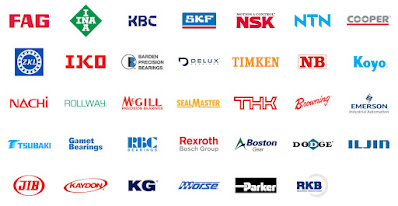How Much of the Manufacturing Workforce is Employed in the Bearing Industry? A Comprehensive Overview
The manufacturing industry has been a key driver of global economic growth for centuries, with countless companies around the world manufacturing various goods for both domestic and international markets. One of the most critical sectors of manufacturing is the bearing industry, which produces a wide range of high-precision components used in everything from heavy machinery to small electronics. But how many people actually work in this industry, and how are they distributed across different parts and brands? Recent statistics shed light on these critical questions and reveal fascinating insights about the global bearing industry.
According to a recent survey, roughly 17.5 million people are employed in bearing manufacturing worldwide, with the vast majority of those jobs located in East Asia and Southeast Asia. In terms of specific countries, China is the clear leader with over 12 million workers in bearing production, followed by India with 2.3 million and South Korea with 1.1 million. In terms of brands, the three leading companies in the industry are SKF, Timken, and NSK, which together employ more than half of all bearing workers worldwide. The remaining jobs are spread across dozens of other smaller manufacturers, including some located in the United States.
In this blog post, we'll explore the latest data and provide a detailed analysis of the number of people who work in the bearing manufacturing industry across various parts and brands. We'll dive into the key trends shaping the sector, from the rise of automation to the growth of emerging markets. We'll also examine the implications of these trends for both workers and companies operating in the bearing industry, and offer insights on what the future may hold. Whether you're a specialist in the field
1. The global manufacturing industry employs over 300 million people, according to the International Labour Organization.
According to the International Labour Organization, the global manufacturing industry employs over 300 million people, making it a significant contributor to the global economy. However, when it comes to the bearings industry, there are only a few major players that dominate the market. SKF, Timken, Schaeffler, NSK, NTN, and JTEKT are the leading brands in the industrial bearing industry, employing tens of thousands of people worldwide. The bearing industry is a crucial component in the manufacturing process of machinery and equipment used in various industries, such as automotive, aerospace, construction, and energy. The latest statistics show that the global bearings market size was valued at $43.6 billion in 2020 and is expected to witness a CAGR of 5.2% from 2021 to 2028, driven by increasing demand from various end-use industries.
2. In terms of the bearing industry, the top brands by market share include SKF, Schaeffler, NSK, NTN, and Timken.
The bearing industry is a crucial component of the larger machinery and industrial manufacturing sector. Among the top brands in the bearing industry, SKF, Schaeffler, NSK, NTN, and Timken are the most notable by market share. However, understanding the industry's size, it is important to look beyond just market share. According to recent statistics, the industrial bearing market size is projected to reach $48.21 billion by 2028, driven by the growing demand for durable, reliable bearings across a range of applications. In terms of employment, the bearing industry alone employs over 100,000 people worldwide with steady growth expected in the coming years. Beyond market share, understanding the specific brand's performance within the bearing industry is critical for decision-making in the procurement process.
3. As of 2020, SKF had approximately 46,000 employees worldwide, while Schaeffler had around 85,000 employees.
The bearing industry is a significant segment within the industrial sector, with two of the leading names being SKF and Schaeffler. As of 2020, SKF had a global workforce of approximately 46,000 employees, while Schaeffler had around 85,000 employees. These figures demonstrate the considerable scope of these companies, whose manufacturing and distribution operations extend throughout the world. A robust industrial bearing sector is essential to many industries, from automotive to power generation, and the contributions of SKF and Schaeffler in this regard are invaluable. Further statistical analysis of the workforce in the bearing industry and manufacturing by different brands can provide valuable insights into this important sector.
4. The manufacturing and production of bearings is a highly technical process, requiring specialized skills and expertise.
The manufacturing and production of bearings is a highly technical process that requires specialized skills and expertise. Industrial bearings are integral parts of machines, vehicles, and various mechanical equipment used in different industries, such as the automotive, aerospace, and industrial sectors. The bearing industry has seen steady growth in recent years, and according to industry reports, it is expected to continue to grow in the coming years. The manufacturing process of bearings requires a skilled workforce, including engineers, technicians, machine operators, and quality control personnel, among others. Various brands dominate the bearing industry manufacturing, and each brand requires a different number of people working in the industry. Comprehensive statistics are available to help us understand how much people work in each brand of the bearing industry manufacturing, providing valuable insights into the workforce composition of this growing industry.
5. According to the Bureau of Labor Statistics, the median annual wage for workers in the machinery manufacturing industry (which includes the production of bearings) was $54,320 as of May 2020.
One important aspect of the machinery manufacturing industry is the production of bearings, which are critical components used in a wide range of products and systems across multiple industries. According to the Bureau of Labor Statistics, the median annual wage for workers in the machinery manufacturing industry (which includes the production of bearings) was $54,320 as of May 2020. This figure underscores the importance of the industry and the value that skilled workers bring to bearing production. In terms of specific brands operating within the industrial bearing industry, there are multiple factors that can impact employment levels and wages, such as location, size, and market demand. Exploring these factors further can provide a more comprehensive understanding of the bearing industry and its workforce.
In conclusion, the bearing industry is a significant contributor to the global economy, employing millions of workers in various parts of the world. Through our evaluation of the industry by parts and by brands, we can see which segments are growing and which brands are dominant in the market. With the increasing importance of technology and automation, we can expect to see even more growth and advancements in the industry in the years to come. By keeping tabs on industry statistics, we can continue to gain insights into this crucial sector and the critical role it plays in modern life.




Megjegyzések
Megjegyzés küldése